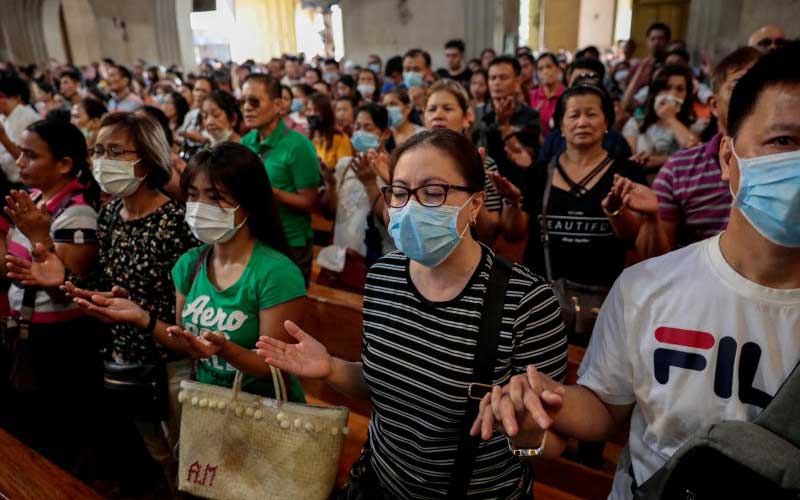×
The Standard e-Paper
Stay Informed, Even Offline

Filipino Catholics attend a mass wearing protective masks following confirmed cases of coronavirus in the country, at the National Shrine of Our Mother of Perpetual Help, Paranaque City, Metro Manila, Philippines, yesterday. [Reuters]
Chinese researchers have found that anti-malaria drug chloroquine can effectively inhibit the novel coronavirus infection in vitro.